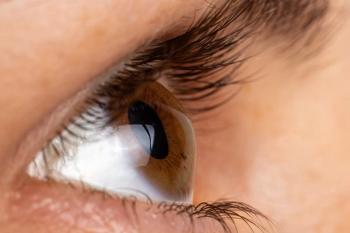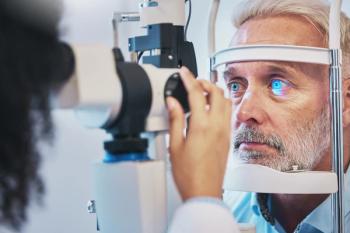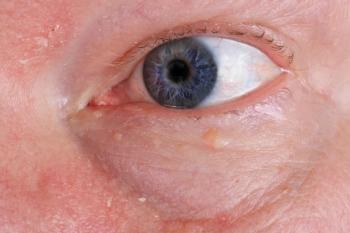
Diet, exercise can diminish eye diseases
The obesity epidemic in America and the health problems it engenders have been well-publicized, but many optometrists may not be aware that poor nutrition, lack of exercise, and obesity also increase the risk of many eye diseases.
Tacoma, WA-The obesity epidemic in America and the health problems it engenders have been well-publicized, but many optometrists may not be aware that poor nutrition, lack of exercise, and obesity also increase the risk of many eye diseases, according to A. Paul Chous, MA, OD, FAAO, Chous Eye Care Associates, Tacoma, WA.
"Inflammation, hypertension, and hypoxia, which is a lack of oxygen being delivered to the body's tissues, set up an 'inflammatory cascade' that leads to complications in the eye and elsewhere," he said.
Although there are a number of effective pharmaceuticals that can help reduce patients' weight and blood sugar levels, he said most patients can benefit dramatically from the old standbys of proper diet and exercise. Unfortunately, such steps are simple to recommend, but not always simple to implement.
Dr. Chous said he gives his patients a handout that offers advice on lifestyle modifications to prevent eye disease.
"At a minimum, people need to move and get their heart rate going 70% of their max level about 30 minutes a day, 5 days a week," Dr. Chous said. "That's just for starters. Patients who want to avoid diseases associated with excess weight have to do more than that."
A Mediterranean-type diet
"Along with exercise, I recommend an anti-inflammatory, Mediterranean-type diet. That means less refined carbohydrates, more fruits and vegetables, more marine and plant sources of omega-3 fatty acids," he added. "It also means cutting down on red meat, which contains a lot of saturated fat. The iron in red meat is believed to contribute to inflammation that causes both cardiovascular disease and eye disease.
"Paying close attention to portion size is also critically important, because many patients don't read food labels and often have no idea of the high number of calories they're consuming. I'm also a big fan of addressing nutritional deficiencies common in diabetes and obesity, such as low serum vitamin D, with targeted supplements," Dr. Chous said.
He noted that patients who visit his practice do so because they have diabetes-as does he-and that his niche is counseling on how to reduce their risk of developing eye damage from diabetes. As such, Dr. Chous' message is likely being delivered to a more willing audience than the same message delivered by other ODs to overweight or obese patients.
For those practitioners, he offered some advice on ways to make exercise and eating right a little bit more "fun" for patients.
Newsletter
Want more insights like this? Subscribe to Optometry Times and get clinical pearls and practice tips delivered straight to your inbox.













































